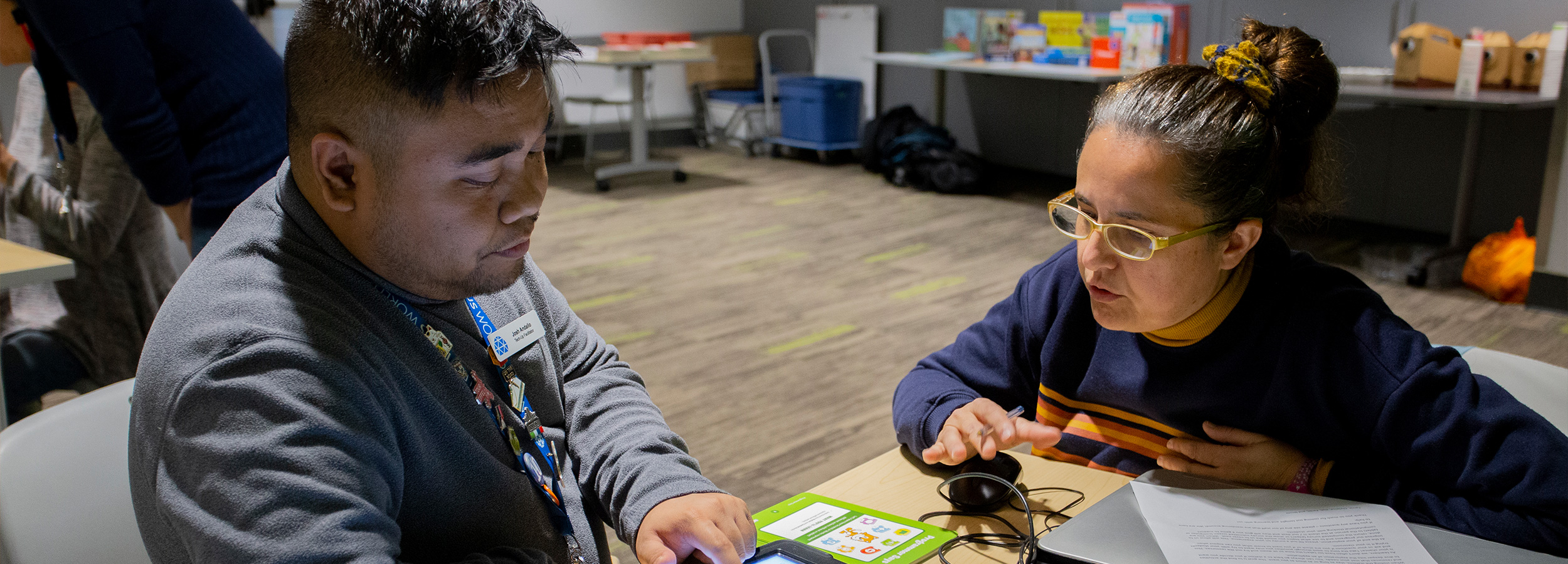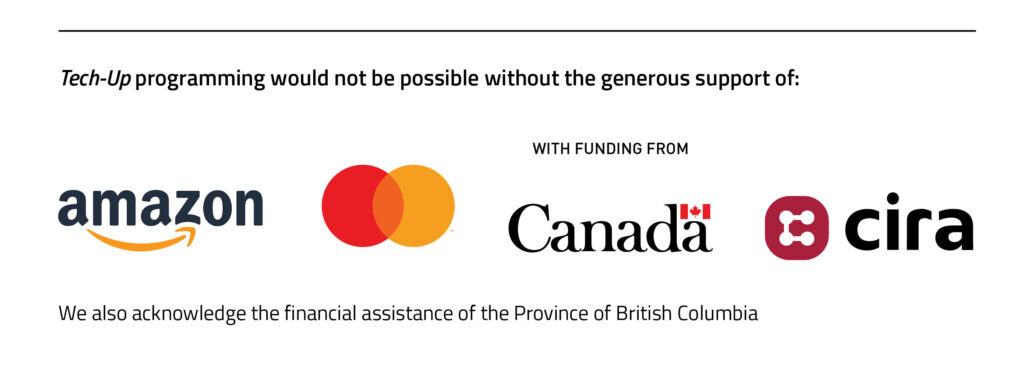Overview
Each 1 to 2-hour workshop offers a blend of fundamental concepts, cross-curricular activities, and an abundance of resources. These workshops are designed for teacher professional development, school-based professional development, and district conferences.
We are excited to share that all Pro-D workshops are free of charge as of March 1, 2025!
Please reach out to [email protected] if you are interested in a particular workshop and are wondering if a different grade level focus than those listed may be available. Grade level ranges listed are meant as guidelines based on the BC curriculum, but we are always happy to brainstorm how best to meet the needs of your students!
Workshop Fees
All Pro-D workshops are free of charge as of March 1, 2025!
Math & Computational Thinking (Gr. K-9):
Computational thinking is a powerful problem-solving approach that strengthens mathematical thinking and digital literacy. In this interactive workshop, we will explore how computational thinking skills can enhance math lessons. We will investigate how breaking problems into steps, recognizing patterns, and thinking logically can help students tackle open-ended, inquiry-based math problems. You'll receive classroom-ready math resources and even get a chance to design your own classroom activities that incorporate these skills. Together, we will discover how computational thinking empowers students to approach math and the digital world with curiosity and confidence.
This workshop is offered virtually and in person.
Digital Literacy & A.I. (Gr. 4-9):
Artificial intelligence isn't new, but generative AI is rapidly transforming how students learn and create. As educators, we play a crucial role in helping students navigate these tools responsibly through strong digital literacy skills. In this workshop, we will explore how students are already using AI, practical ways educators can utilize AI as a teaching tool, and strategies to encourage critical thinking about technology use. Digital literacy is about so much more than fact-checking-- it's about empowering students to engage with the world thoughtfully and critically. Together, we will explore resources that tackle the challenges and lean into the opportunities presented by digital technology and AI use in education.
This workshop is offered virtually and in person.
Introduction to Specific Technologies (K-12):
Do you have Micro:bits, Finch Robots, Ozobots, or Edisons, but you're not sure where to start? Maybe your school has access to these tools, or you're borrowing a Science World loaner kit. However you got your hands on some robots, this session will guide you through the basics. We'll guide you through how the technology works and explore practical ways to integrate them into your curriculum using a "coding to learn" approach.
When booking, please let us know which technology you'd like to focus on and ensure you have access to it during the session. Let's enhance student learning with engaging technology tools!
This workshop is only offered in person and requires that you have the relevant equipment on hand for the session. We can provide an introduction to one (or a combination of) the following technologies: Micro:bits, Finch Robots, Ozobots, Edison Robots, Robot Mice, or Scratch.
Pine Cones and Pixels (Gr. K-7 or 8-12):
In a largely digital world, it can often feel as though technology is taking our attention away from the outdoors. However, digital tools and AI can actually enhance students' appreciation and understanding of the environment. This workshop will explore how technology supports hands-on learning of content and skills in the BC science curriculum by helping students collect, analyze, and visualize data about the natural world. Using apps like iNaturalist and Seek, students can observe and document local species. Tools like TinkerCAD allow them to model patterns and structures found in nature. Many other powerful (and free!) digital resources are available to enhance learning in environmental and nature-based education. By integrating digital learning with scientific inquiry, we can inspire curiosity and deeper connections with the environment.
This workshop is offered virtually and in person.
Science is Everywhere! (Gr. K-7 or 8-12):
Humans explore the world with curiosity from the moment we are born. Science is a way of shaping our many questions and observations into testable experiments and meaningful conclusions. However, science does not only exist in the science classroom-- rather, it's a process to help us better understand and learn about the way the entire world works. This workshop will explore the cross-curricular nature of science, with a focus on how the BC science curriculum intersects with and is enhanced by other subject areas. Through simple, easy-to-reproduce experiments with everyday materials, we will explore ways to incorporate scientific thinking across the curriculum—including how digital tools, AI, and data literacy can support inquiry and discovery.
This workshop is offered virtually and in person.
Health in Orbit (Gr. 4-9):
We live inside human bodies every day, but do we really understand them? Let’s embark on an imaginative journey through the major human body systems by exploring how they are affected when humans travel into space. Encourage your students to ask questions like, “Why do astronauts have to exercise for multiple hours each day?” and “What would my body need in order to survive on Mars?” This health and anatomy-focused workshop will also weave in physics, engineering, and digital tools—including AI and data modeling—to analyze astronaut health data, simulate space environments, and explore the future of human spaceflight through a cross-curricular STEAM-based investigation of both inner and outer space.
This workshop is offered virtually and in person.

